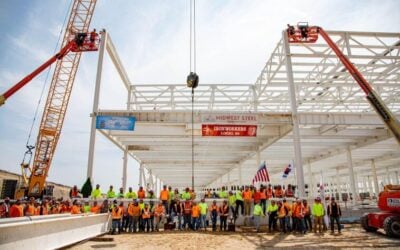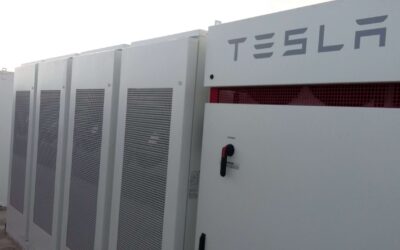
The US national Solar Energy Industries Association (SEIA) and Energy Storage Association (ESA) are among a group of six clean energy trade groups that have called on Congress to help the sector to ride out the worst economic impacts from the COVID-19 pandemic.
A letter addressed to Speaker of the House of Representatives Nancy Pelosi, Senate Majority Leader Mitch McConnell, House of Representatives Minority Leader Kevin McCarthy and Senate Minority Leader Chuck Schumer highlights that each of the past five years has seen more than US$50 billion invested in the clean energy sector, calling it “one of the nation’s most important economic drivers”.
“We write on behalf of the thousands of companies that participate in America’s renewable and clean energy economy to call for the prompt repair and extension of critically important tax incentives to help the clean energy sector surmount the impacts of the COVID-19 pandemic,” the letter begins.
Sent by SEIA and ESA alongside the American Council on Renewable Energy (ACORE), the American Wind Energy Association (AWEA), National Hydropower Association (NHA) and Renewable Energy Buyers Alliance (REBA), the groups asked “urgently and respectfully” for an extension of start construction and safe harbour deadlines to qualify for renewable energy credits.
Try Premium for just $1
- Full premium access for the first month at only $1
- Converts to an annual rate after 30 days unless cancelled
- Cancel anytime during the trial period
Premium Benefits
- Expert industry analysis and interviews
- Digital access to PV Tech Power journal
- Exclusive event discounts
Or get the full Premium subscription right away
Or continue reading this article for free
The letter also asks for “renewable credits to be available for direct pay to facilitate their monetisation,” as well as asking for a directly paid tax credit to be introduced for standalone energy storage – something the ESA has been asking for and working towards attaining for some time. This tax credit for energy storage would help increase adoption of renewable energy while securing resilience of the grid, the groups said.
COVID-19 is endangering the growth of renewable energy by disrupting the supply chain, which has the knock-on effect of preventing developers of renewable energy projects from finishing in time to qualify for tax credits. The reduction of available tax equity is also highlighted as a problem.
“The current uncertainty about the ability to qualify for and monetise tax incentives will have real and substantial negative impacts to the entire economy,” the letter, which can be viewed here, said.
Meanwhile, Australia’s government has made available tax relief for capital investment purchases for companies with an annual turnover of less than AU$500 million (US$296 million). Industry voices in a webinar yesterday said investing in solar and energy storage would be a smart way to spend that money for businesses as it offers a return on investment for 20 years.





